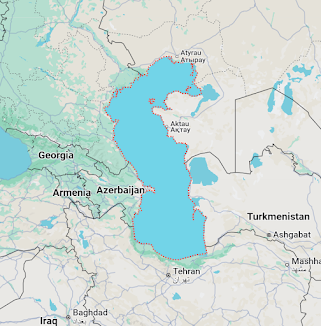Let's find out largest Lakes
|
Rank |
Lake Name |
Surface
Area (km²) |
Location |
|
1 |
Caspian Sea |
371,000 |
Bordered by Russia, Kazakhstan,
Turkmenistan, Iran, and Azerbaijan |
|
2 |
Lake Superior |
82,100 |
Bordered by Canada and the United
States |
|
3 |
Lake Victoria |
68,870 |
Bordered by Tanzania, Uganda, and
Kenya |
|
4 |
Lake Huron |
59,600 |
Bordered by Canada and the United
States |
|
5 |
Lake Michigan |
58,000 |
Located entirely within the United
States |
|
6 |
Lake Tanganyika |
32,900 |
Bordered by Tanzania, Democratic
Republic of the Congo, Burundi, and Zambia |
|
7 |
Lake Baikal |
31,500 |
Located in Russia |
|
8 |
Great Bear Lake |
31,000 |
Located in Canada |
|
9 |
Lake Malawi |
29,500 |
Bordered by Malawi, Mozambique,
and Tanzania |
|
10 |
Great Slave Lake |
27,000 |
Located in Canada |
The Caspian Sea is widely recognized as the largest lake in the world, covering an area of approximately 371,000 square kilometers. Despite its name suggesting otherwise, it is classified as a lake due to its isolation from the world's oceans. The Caspian Sea is about same as Japan (377,000).
However, some geologists argue that the Caspian Sea is a small ocean rather than a lake, as it is centered on an oceanic basin rather than lying entirely over continental crust. Under this geological definition, Lake Michigan-Huron, which is hydro logically a single body of water connected through the Straits of Mackinac, would be considered the largest lake by surface area.
These lakes are significant not only for their size but also for their ecological importance, supporting diverse ecosystems and providing resources for millions of people.
We should take care of the Earth environment.
Tags:
Lake

